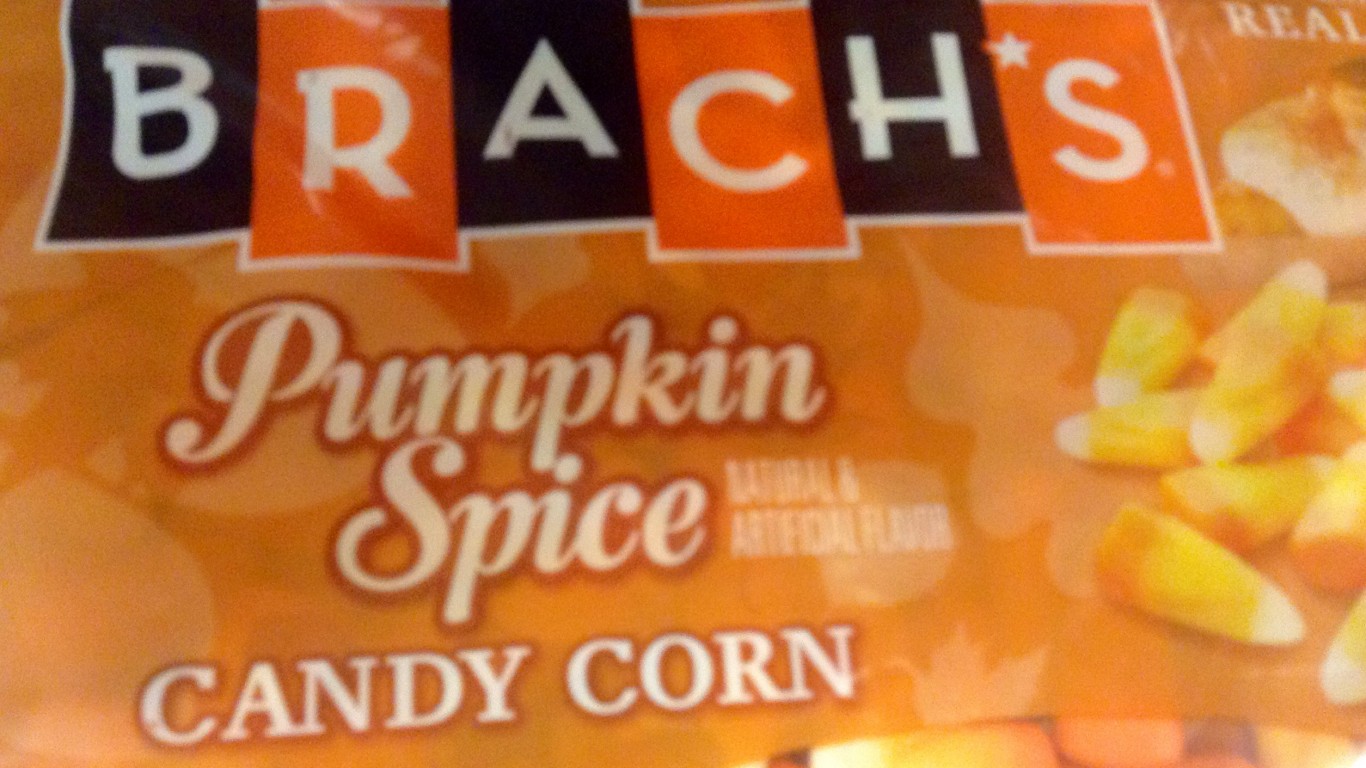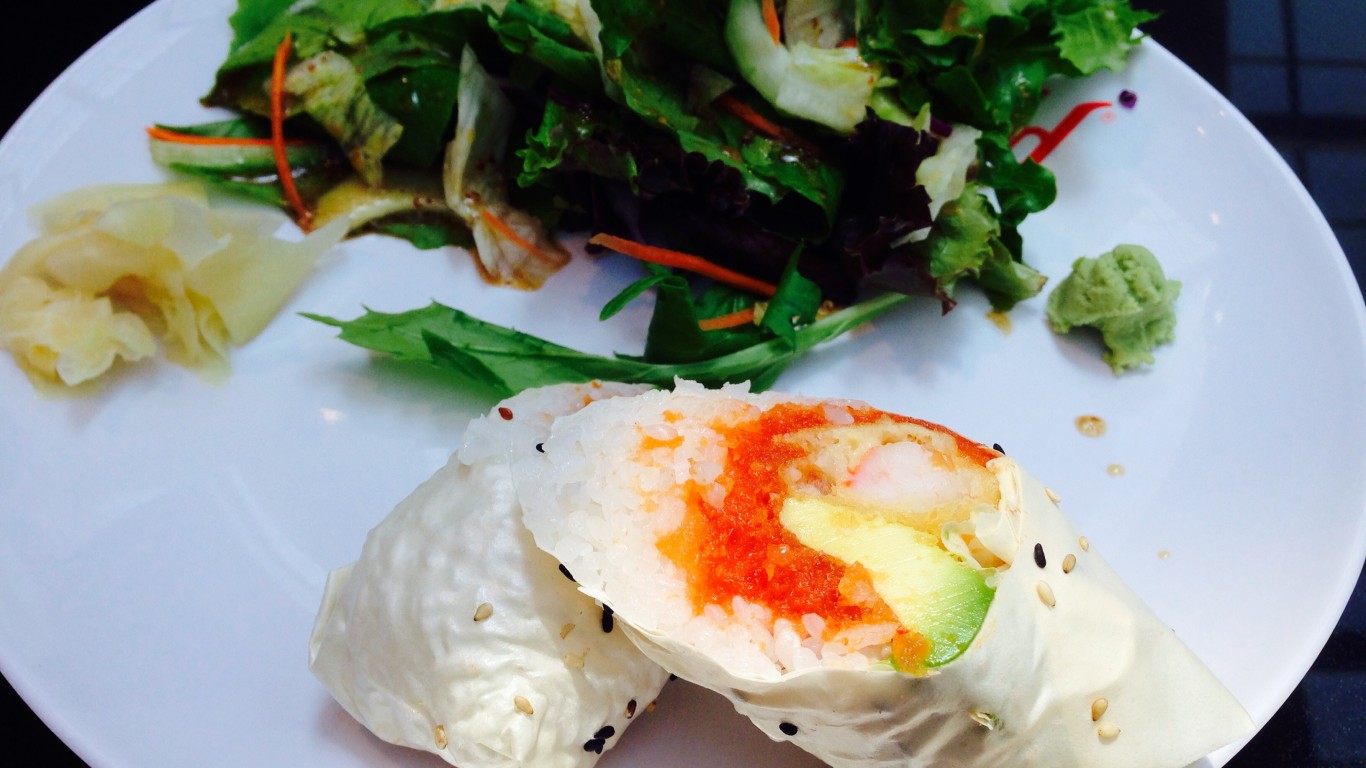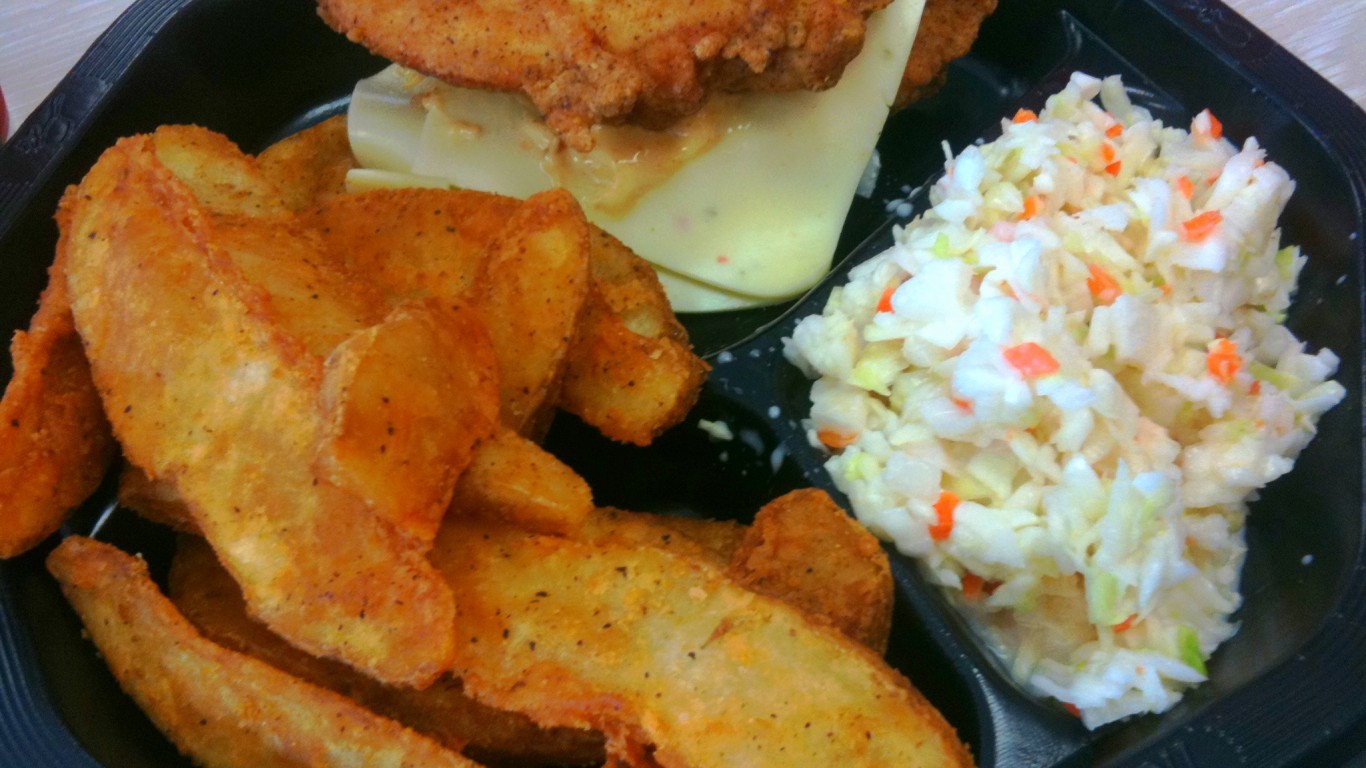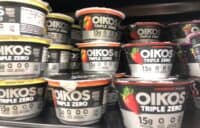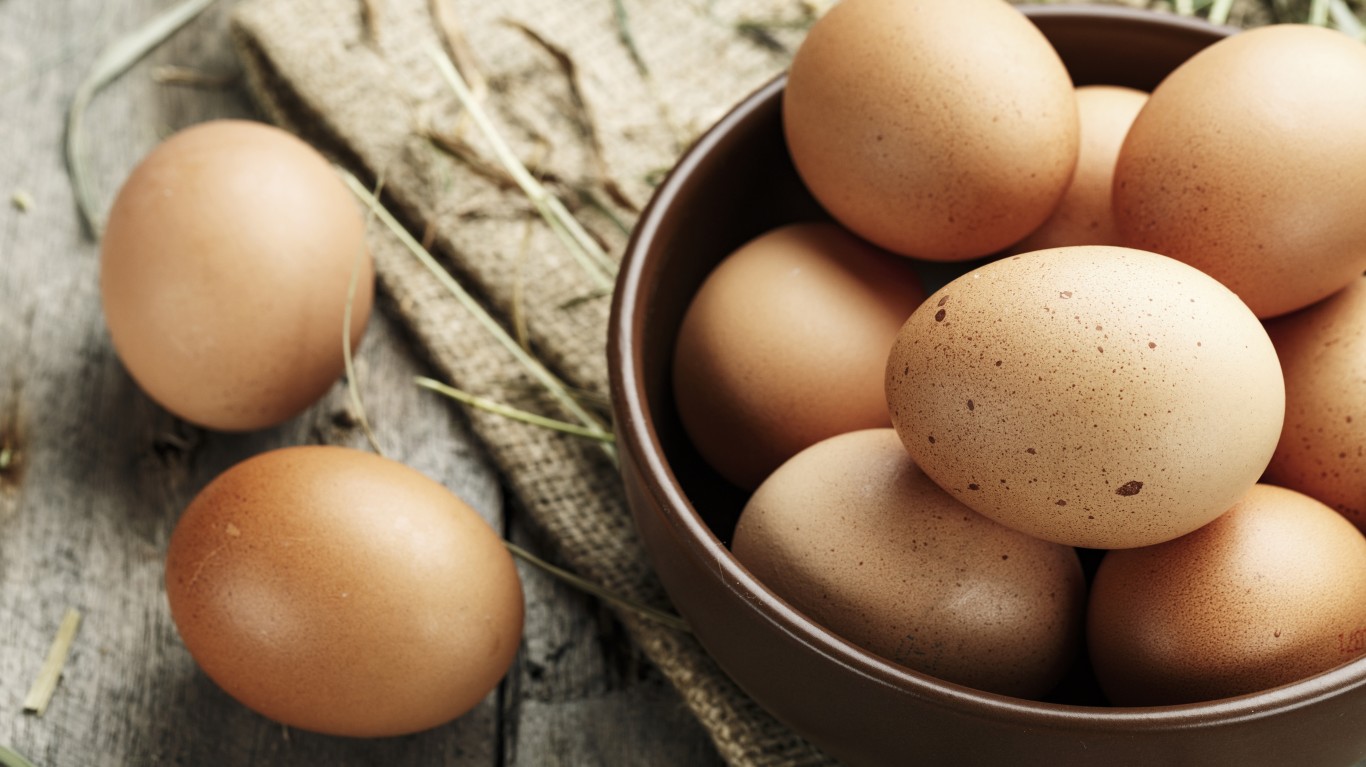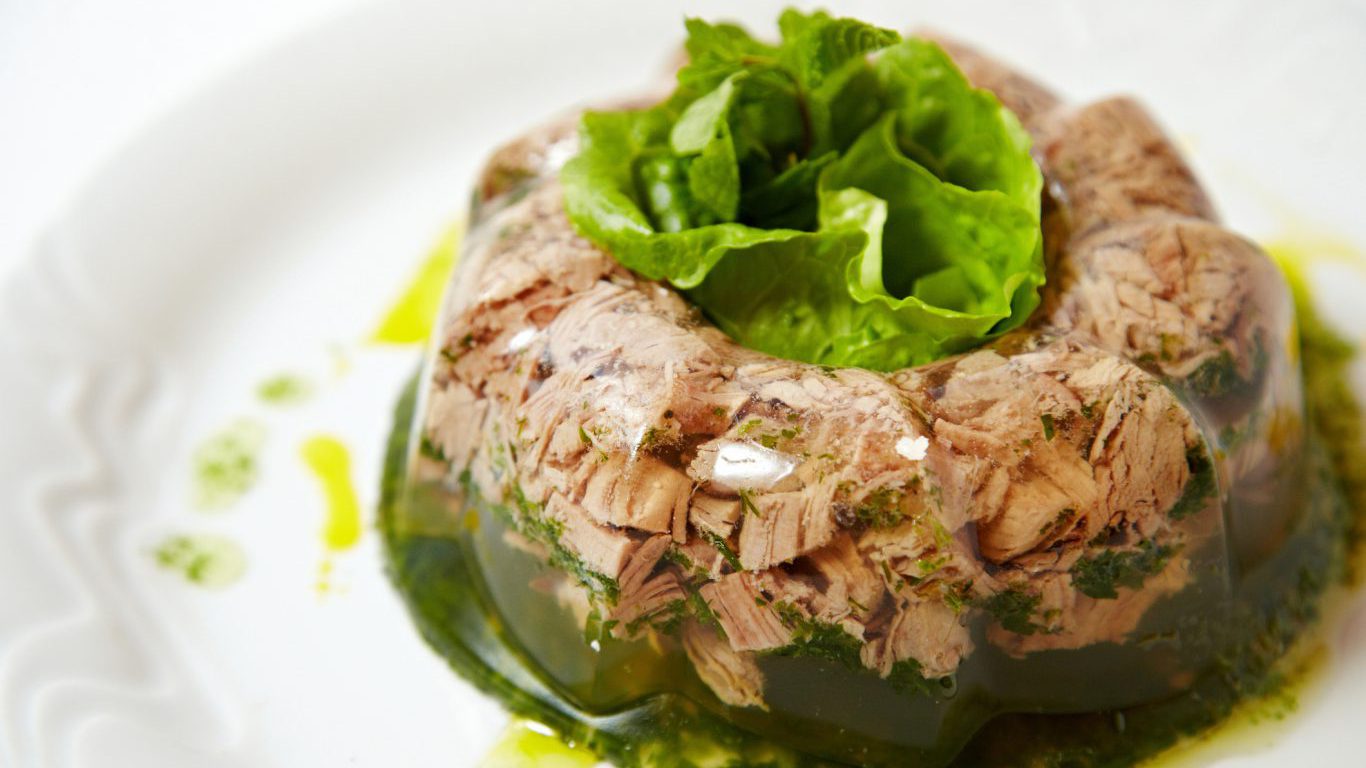
Food and drink trends come and go. Some blaze across the culinary landscape, enjoying a year or two of fame at most, then fade into obscurity. Others hang around stubbornly long after they’ve jumped the proverbial shark. (These are typical examples of food fads from the decade you were born.)
24/7 Tempo has put together a list of some of the more annoying culinary trends the past half-century or so. Some of these have pretty much vanished from the landscape, or are revived today only as amusing retro relics. Others are, regrettably, still with us but seem to be showing signs of ebbing popularity.
Many of the trends we can do without in the future involve mixing elements that have no business linking up. Flavoring the ancient Middle Eastern chickpea preparation called hummus with baking spices like cinnamon and nutmeg insults several cultures all at once. Sticking a slice of cake on top of a milkshake is hard to beat as an example of wretched (and difficult to consume) excess.
Other trends are just creations that never made much sense to begin with (cold pasta salad) or have long outlived their usefulness (TV dinners). Still others are examples of overusing perfectly good ingredients, like bacon or kale. Here, for example, are 25 bacon-flavored foods the world doesn’t need.
Click here to see food trends we hope never make a comeback
Food preferences are a matter of individual taste, of course, and there are undoubtedly people who have hope some of these will be around forever, no matter what we say. That’s fine. We’ll be dining elsewhere.
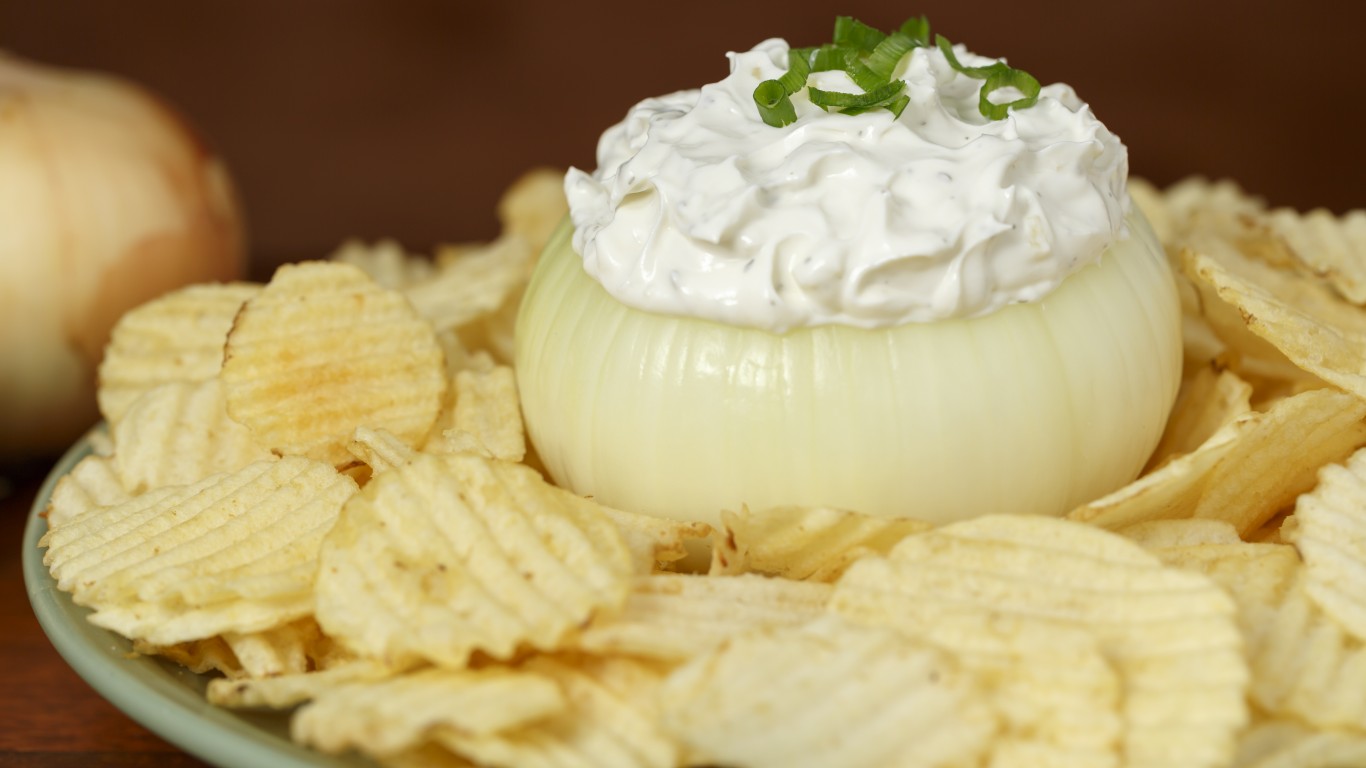
1. Weird dips
Dips were a big deal at mid-20th-century parties. Guacamole and blue cheese, sure, but also variations made with things like onion soup mix; olives and shredded cheddar; a blend of cream cheese, horseradish, mustard, and mayo; and minced clams. The last of these was one of the weirdest, a goopy affair full of chewy clam nubbins, sort of like pencil erasers stirred into library paste.
[in-text-ad]

2. Jell-O salad
Bright-hued and jiggly, molds of variously flavored Jell-O encasing everything from mandarin orange segments to shredded carrots to tuna and black olives were popular at family meals in the 1950s and ’60s, especially around holidays. An article about them in a British newspaper some years ago was titled “Jell-O salads: American abomination or Thanksgiving treat?” The former, obviously.
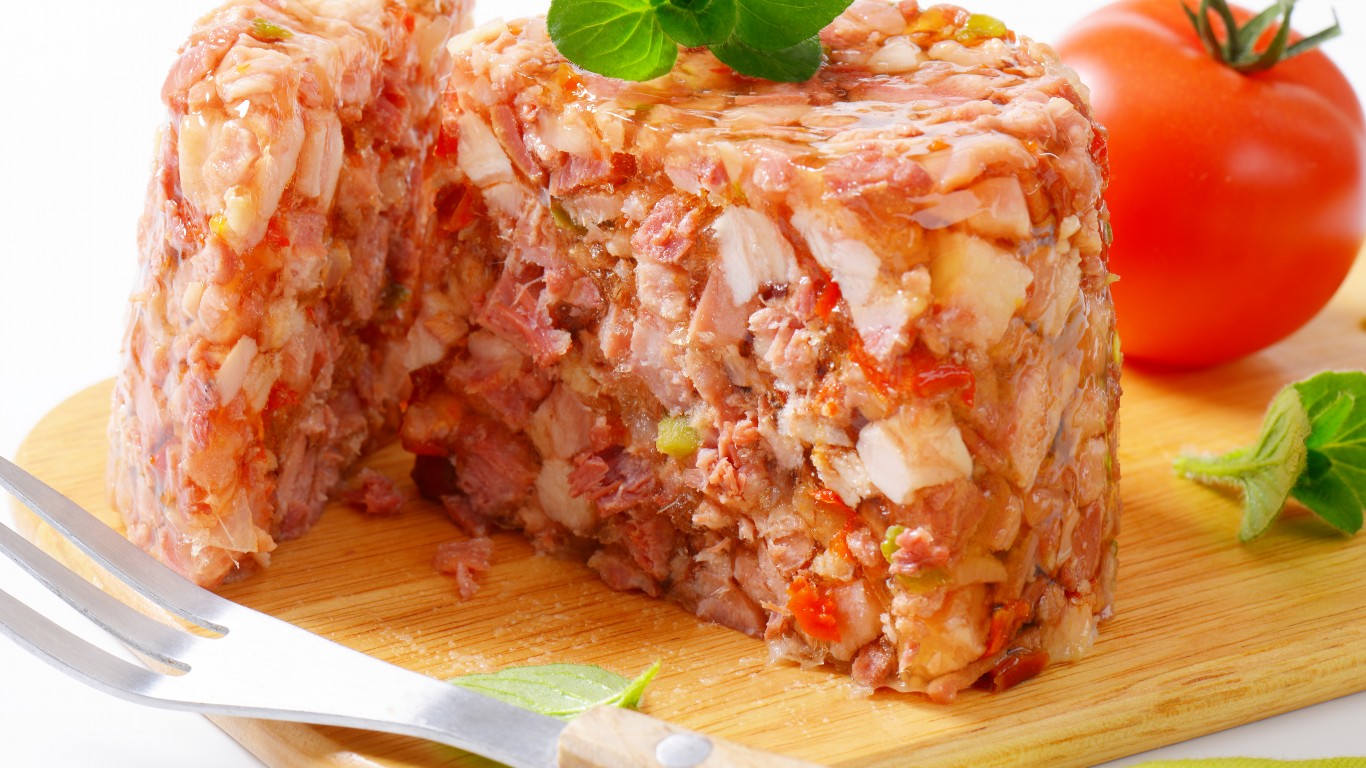
3. Aspic
Aspics are like savory versions of Jell-O, made by mixing gelatin with various salty liquids. One of the most popular used to be one involving tomato juice and gelatin chilled in a ring-shaped mold. It was typically unmolded into a wobbly scarlet mound presented on a bed of lettuce, sometimes accompanied by mayonnaise-bound shrimp or chicken salad. Frightening.

4. Cold pasta salad
Why cold lumps of gummy starch tossed with salad dressing and various chopped vegetables and maybe shreds of meat, seafood, or poultry ever became such a ubiquitous deli offering and lunch menu staple is a mystery. Pasta was meant to be served steaming hot.
[in-text-ad-2]

5. TV dinners
Small portions of over-salted and additive-filled main courses, side dishes, and sometimes desserts presented together in microwaveable segmented trays… Fine, I guess, if your idea of dinner is basically low-rent airplane food.

6. Wine coolers
These canned or bottled mixtures of cheap wine and sweetened fruit juice were big in the 1980s. Their defenders used to say that they were gateway drinks, appealing to a young (presumably just barely drinking age) audience who would acquire a taste for wine from them and move on to pricier, more sophisticated stuff. Unfortunately, the taste they offered wasn’t much like wine at all.
[in-text-ad]

7. Kale everything
Sure, kale is a nutritious green vegetable. It makes a nice side dish. Why turn it into chips, cereal, smoothies, Caesar salad, baby food, nutritional supplements, or skin care products? Leave the poor thing alone.

8. Bacon-flavored everything
Everybody loves bacon. And few things are better than some crisp-fried strips with your eggs or pancakes or on your cheeseburger, BLT, or club sandwich, or maybe crumbled into a salad. But bacon jelly beans? Hot sauce, coffee, olive oil, vodka — doggy treats? It’s almost enough to make you give up bacon for life, which would be a tragedy.
9. Pumpkin spice everything
Starbucks introduced “pumpkin spice” (a mixture of cinnamon, nutmeg, and cloves) as flavoring for a coffee drink in 2004. The idea soon spread to bagels, cheese, hummus, peanut butter, salsa, and all kinds of other places where it didn’t belong. Author Alex Erickson wrote a mystery novel called “Death by Pumpkin Spice.” We know the feeling.
[in-text-ad-2]
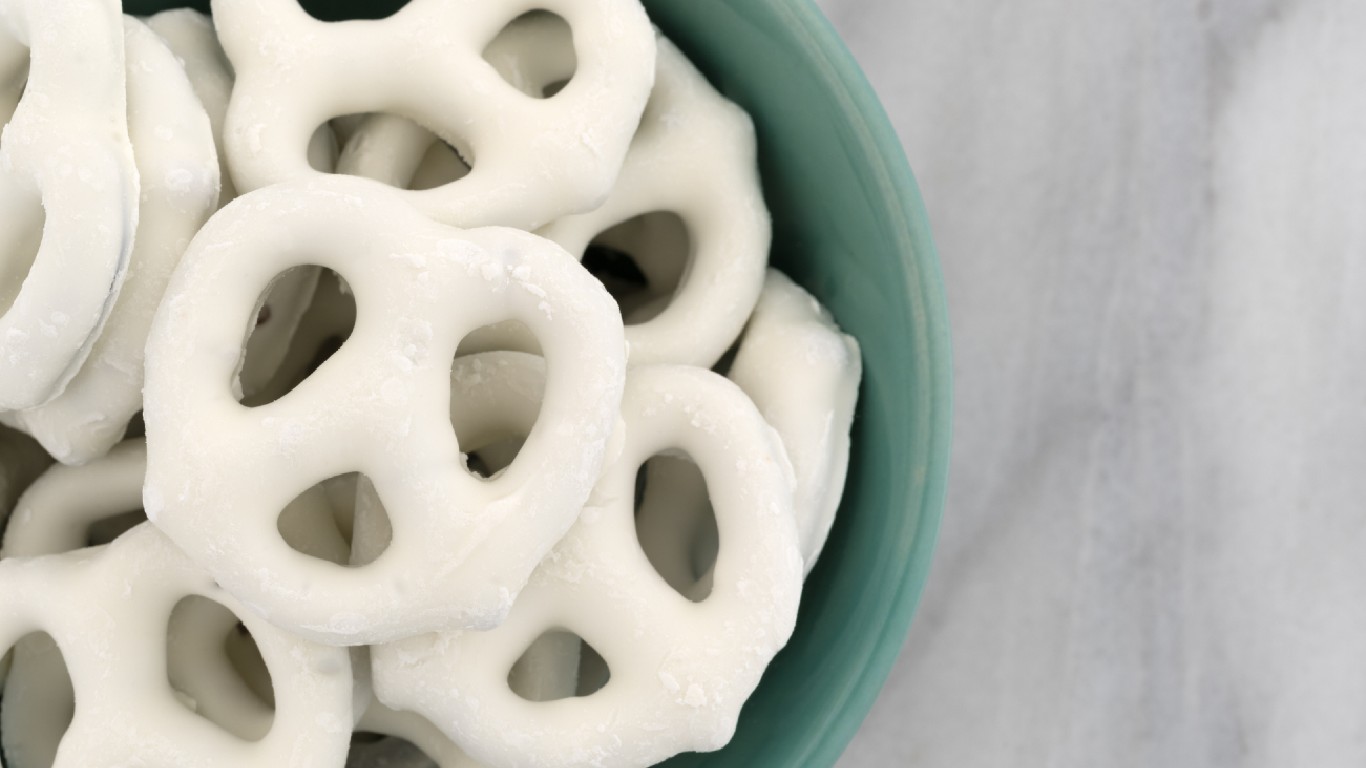
10. Birthday-cake-flavored anything (except birthday cake)
What does birthday cake taste like? Obviously it depends on the kind of cake and the kind of frosting. Birthday cake flavor as an additive to other foods, though, seems to mean an overdose of vanilla. And of course, who wouldn’t want that unmistakable cloying vanilla character in their pretzels, peanut butter, jelly beans, or potato chips — not to mention their lip gloss and of course their vodka? We wouldn’t.
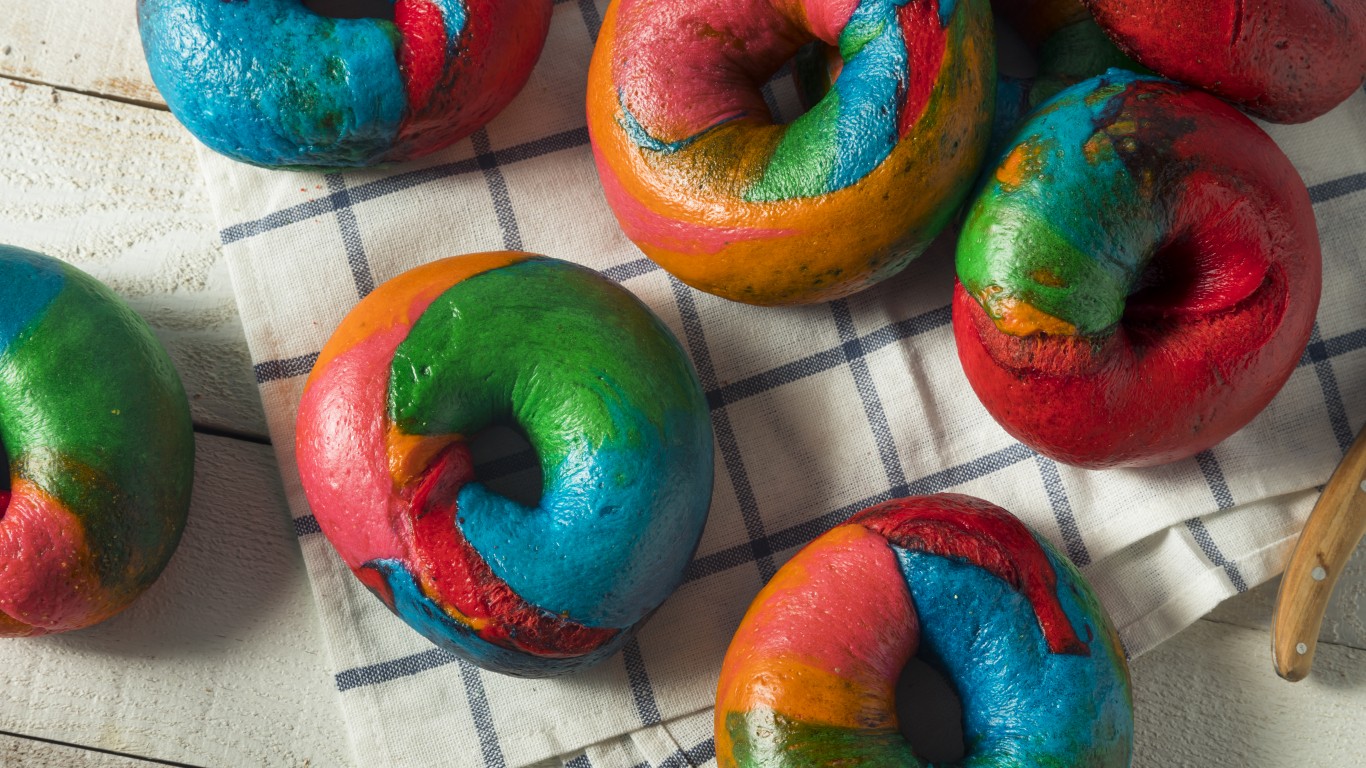
11. Rainbow foods
Rainbows are beautiful, and have long been a symbol of hope, inclusiveness, and diversity. In recent years, though, they have also become a symbol of juvenile silliness. What exactly does a riot of colors add to things like bagels, cupcakes, waffles, pizza, hamburger buns, and grilled cheese sandwiches? A scientific study published in 2014 proposed that multi-colored foods staved off boredom. Who gets bored eating?
[in-text-ad]
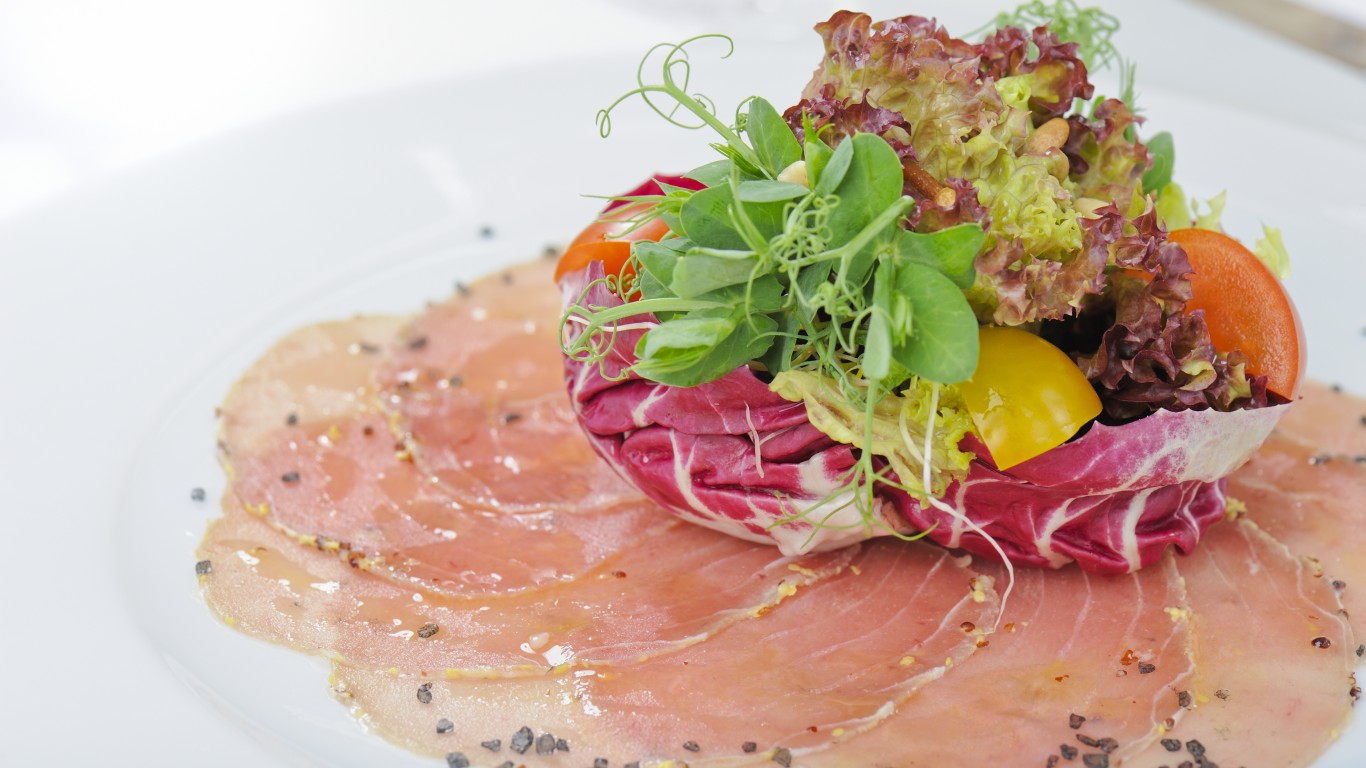
12. Everything Carpaccio
Carpaccio — originally raw, paper-thin beef drizzled with a mayonnaise-based sauce — was invented at Harry’s Bar in Venice in 1950 and named for the Renaissance painter Vittore Carpaccio, because its colors were thought to resemble the rich reds and whites he used. For 20 or 30 years now, though, the artist’s name has been applied to almost anything thinly sliced and arrayed on a plate, no matter what its color — scallops, tuna, veal, beets, mushrooms, cauliflower, and more. Show some respect for the arts.
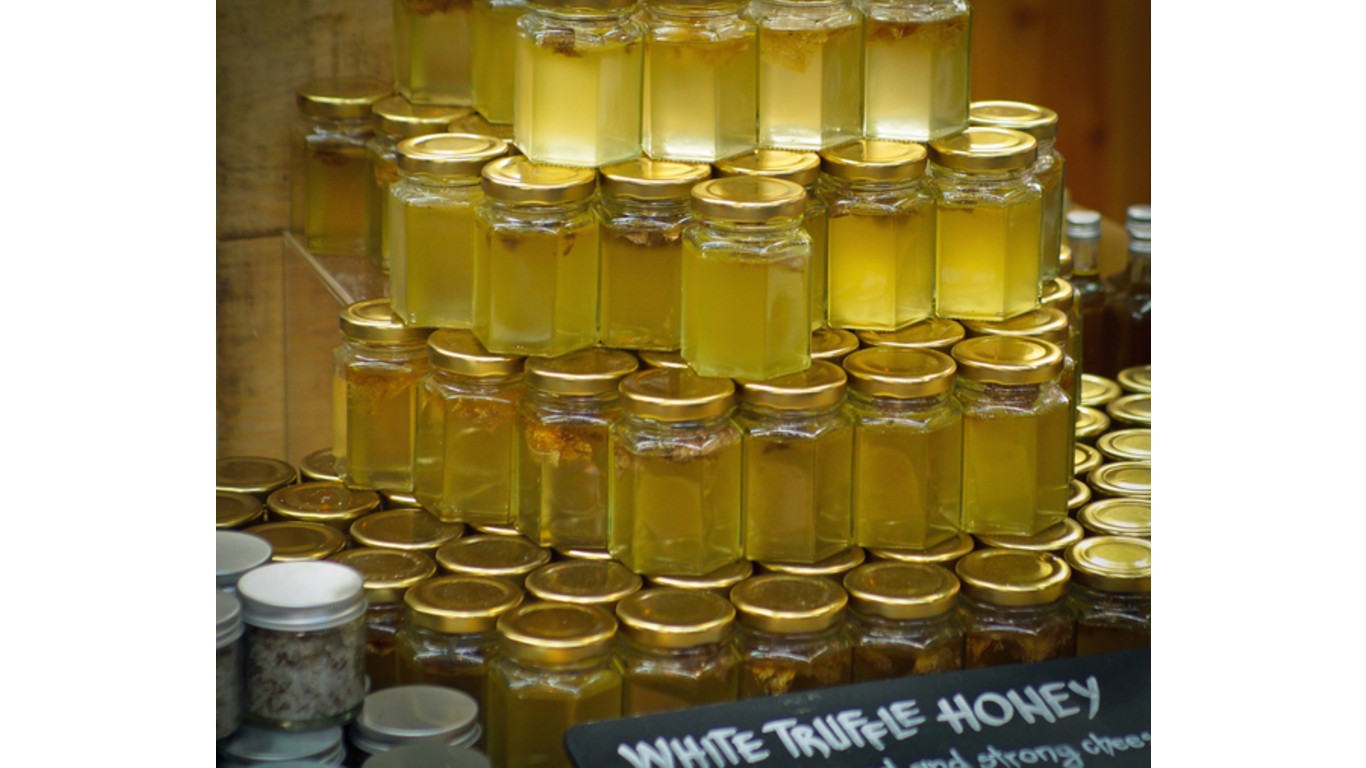
13. White truffle oil
White truffles are a luxury ingredient in Italian cuisine (they can easily cost $4,000 or more per pound), lending an unmistakable and very strong earthy flavor and aroma to pasta, risotto, and other dishes. No truffles are harmed in the making of most truffle oil, however. Instead, it’s concocted with artificial compounds with names like 2,4-dithiapentane, which supposedly mimic the flavor of the real thing. They also smother the taste buds with a gassy flavor that overwhelms just about everything else.
14. Sushi burritos
Cross-cultural food combinations are fun. Korean tacos, cheesesteak egg rolls, tandoori chicken pizza, and the like are just fine, as long as they’re well made and you don’t take them too seriously. But what’s the point of wrapping (presumably) sushi-quality raw fish in a flour tortilla instead of seaweed? It’s a textural mismatch. What’s next? Mole poblano maki?
[in-text-ad-2]
15. Non-bread burger “buns”
Fast food mash-ups — unexpected combinations of various foods — became a big deal in the 2000s (think Doritos Locos tacos). The aspect of the trend that makes perhaps the least sense, though, is the replacing of traditional hamburger or sandwich buns with things like donuts, blocks of fried ramen noodles, or fried chicken cutlets (the notorious KFC Double Down). There are even burgers nestled between two grilled cheese sandwiches. Bakers developed buns because they do the job best. Trust the baker.

16. Over-the-top Bloody Marys
The Bloody Mary is a classic brunch-time drink — a bracing, dark red cocktail of spiced vodka and tomato juice, traditionally garnished with a simple stalk of celery. Somehow that garnish started growing in unexpected ways and today the cocktail is often more of a meal than a beverage, with the celery supplemented with skewered fruit, jumbo shrimp, sliders, sushi rolls, barbecued ribs, and who knows what else. Drink your Bloody. Put your dinner on a plate.
[in-text-ad]

17. Over-the-top milkshakes
The dessert equivalent of the overdone Bloody Mary is the ridiculous milkshake. Milkshakes are rich enough by themselves. Whipped cream and a cherry are frosting on the cake. Do they really need to be topped, as well, with cookies, candy bars, lollipops, pieces of cake, slices of pie, or combinations thereof?
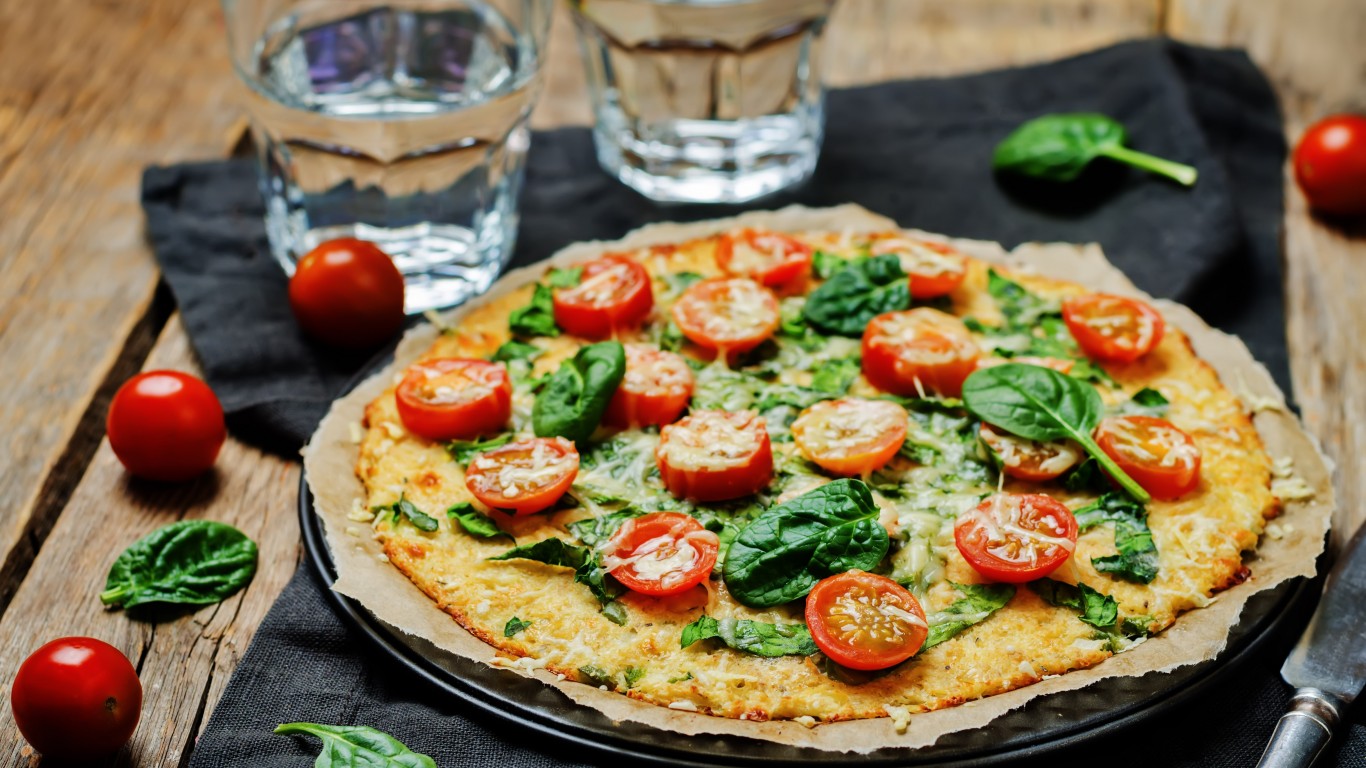
18. Cauliflower pizza crust
Cauliflower is a versatile vegetable. It’s nice just simply boiled and served with butter or cloaked in cheese sauce. It makes great soup or a crunchy crudité. Blending it into a kind of dough with cheese and eggs to make a so-called pizza crust, however, is just a bad idea. Eat your vegetables. But don’t try to make them something they’re not.
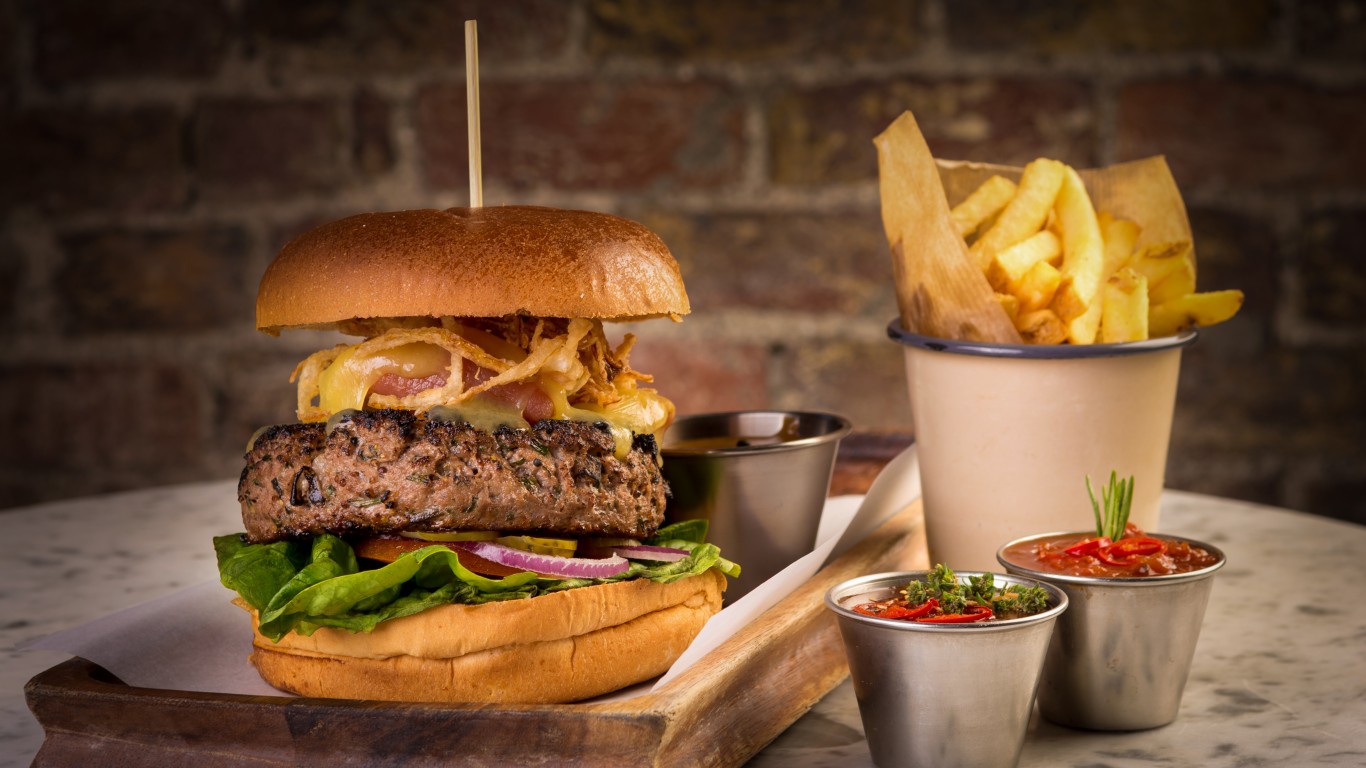
19. $100 burgers
Whether it’s a fast-food version for a buck or so or a considerably larger and more serious interpretation costing $15 or $20 at a good restaurant, the burger is meant to be simple, unpretentious, easily enjoyable food. So what was with the pre-economic-turndown craze for burgers loaded with luxury ingredients (foie gras, caviar, lobster, truffles) and priced at a C-note or more? Hey, fancy food: Stay in your lane.
[in-text-ad-2]
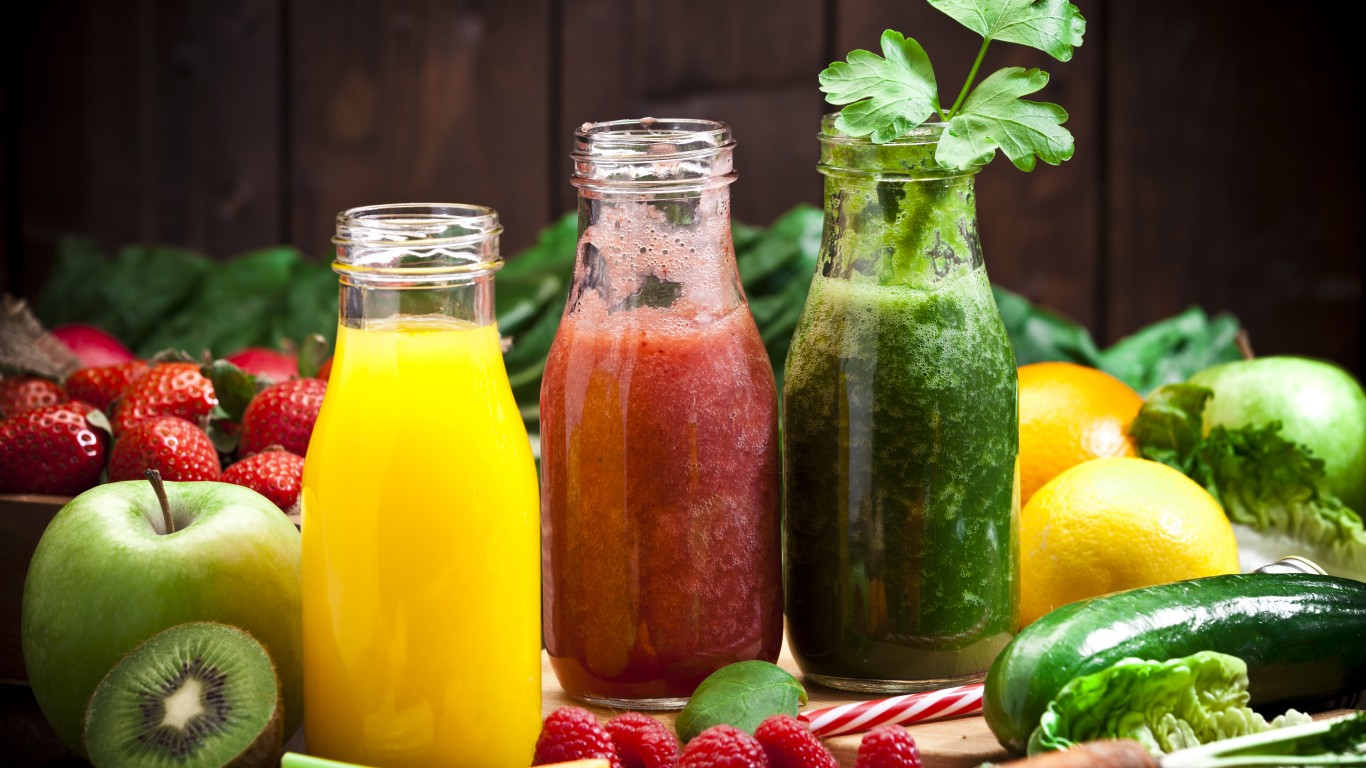
20. Juice cleanses
If you stop eating for a few days, a week, or longer and subsist on various combinations of fruit and vegetable juice with protein powders and other ingredients added, you’ll “detox” and end up being healthier than ever. Not. There is no scientific evidence for the supposed health benefits of juice cleanses, and they might actually wreak havoc on your metabolism.
Take This Retirement Quiz To Get Matched With An Advisor Now (Sponsored)
Are you ready for retirement? Planning for retirement can be overwhelming, that’s why it could be a good idea to speak to a fiduciary financial advisor about your goals today.
Start by taking this retirement quiz right here from SmartAsset that will match you with up to 3 financial advisors that serve your area and beyond in 5 minutes. Smart Asset is now matching over 50,000 people a month.
Click here now to get started.
Thank you for reading! Have some feedback for us?
Contact the 24/7 Wall St. editorial team.
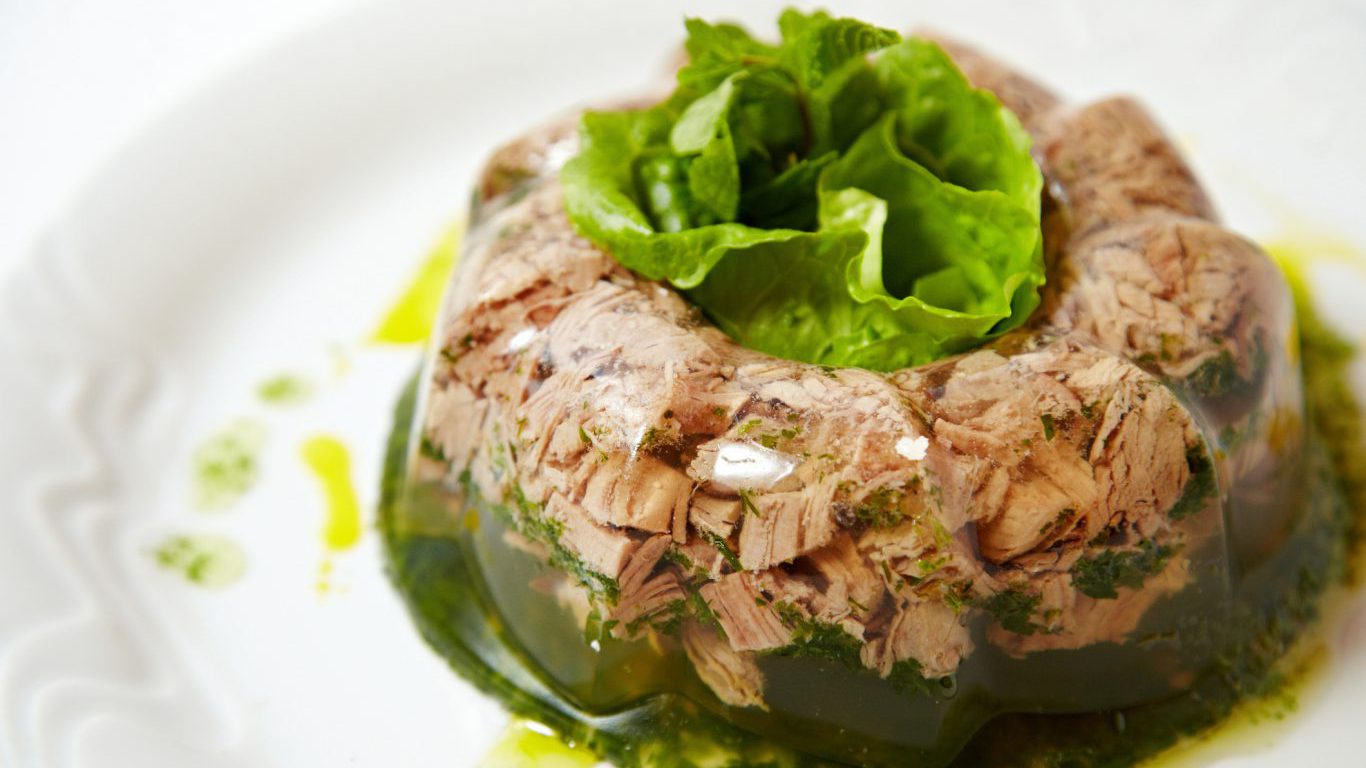 24/7 Wall St.
24/7 Wall St.